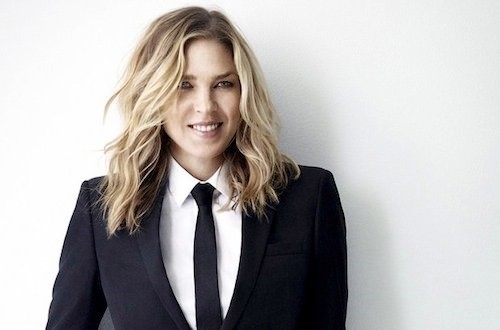
11.14.2015
DIANA KRALL SANG A SUBLIME TRIBUTE TO ALLEN TOUSSAINT AT THE SAENGER
The Times-Picayune: Doug MacCash: November 12th 2015
Diana Krall had already softened the Saenger Theatre crowd Thursday night (Nov. 12), with her sweetly melancholic song selection and vocal style. When her piano solo segued into a wistful rendition of the late Allen Toussaint’s “Southern Nights,” the audience melted completely. Toussaint died Tuesday (Nov 10).
In her alluringly hoarse voice, the Canadian jazz diva rediscovered the longing and mystery at the core of the song, as her hands traced dreamy, harp-like runs across the keyboard. The tiny stars glowed above in the Saenger’s midnight blue ceiling.
Ask anyone in attendance, it was as sublime a tribute as could be imagined.
What made the moment even more poignant was that a towering photo of Toussaint’s Rolls-Royce, with the PIANO license plate was projected at the back of the stage.
“Thank you,” someone in the crowd shouted during the applauds, which spoke for us all.
“Sunny Side of the Street,” “I’m Gonna Sit Right Down and Write Myself a Letter,” “California Dreamin'” “Just Like a Butterfly That’s Caught in the Rain,” “The Look of Love,” and other songs that spanned the decades, all seemed to take on a fragile, emotional imperative in Krall’s understated jazz arrangements.
Bob Dylan’s “Wallflower” was both sad and sanguine. John and Michelle Phillips’ “California Dreamin'” ached with yearning and nostalgia. Tom Waits’ “Temptation” was a tempestuous counterpoint. Robbie Robertson’s “Ophelia” (the final encore) was a brakes-off bouncing romp befitting Krall’s best throaty vocals.
Krall is a supple pianist, sometimes showy, sometimes casual, sometimes fluid, and sometimes abrupt, as the mood demands. I love it when she dramatically drops her right hand from the keyboard when she reaches the highest note. It’s like her poor fingers have fallen off a cliff.
At the end of a series of percolating piano riffs, the otherwise demure Krall announced that her brassiere strap had fallen, which meant, she said, “I must be getting it right.”
Her backing quintet, composed of bass, drums, guitar, violin and organ, was impeccable. The players expertly and enthusiastically seized solos from time to time, but most often they remained gracefully restrained, providing plenty of sonic space for Krall to soar.
The sound quality in the old movie house was excellent, and the crowd, made up mostly of the bespectacled, silver-haired set, was relaxed and reverent, allowing Krall and company to achieve a sense of quiet intimacy, despite the large venue.
And thumbs up to whoever chose the background images that accompanied each song. Including an awkwardly seductive dance from Fritz Lang’s “Metropolis,” a celestial carriage drawn by a skeletal horse from (I imagine) a Georges Méliès film, a clip of a can-can dancer that might have been shot by Edison, an enormously enlarged still photo of an antique China doll, an un-ironically beautiful close-up of a lava lamp and other antique images; the backgrounds were a poetic addition to the music.
“Southern Nights” wasn’t the only time Krall paged through the Crescent City songbook. She unexpectedly insinuated a lovely, spare piano rendition of “Do you Know what it Means to Miss New Orleans” in the midst of other songs and late in the show she sang a verse or two of “Such a Night.”
Such a night, is right.